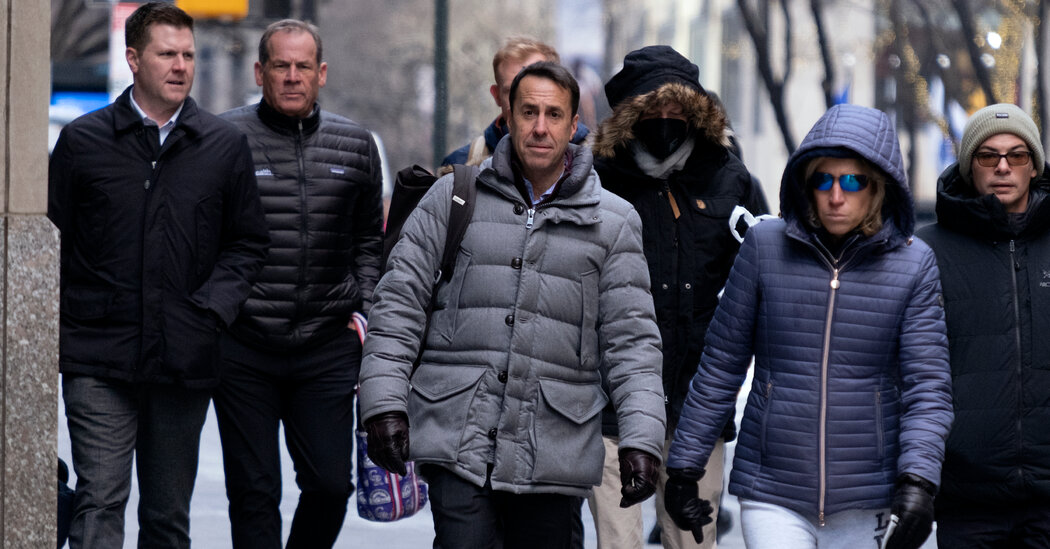The players formally rejected the league’s offer — they didn’t believe some of M.L.B.’s ideas would accomplish what the league claimed — and made a counterproposal.
With spring training scheduled to begin in just over three weeks and the sides still far apart on a striking a new labor agreement, Major League Baseball and its players’ union met on Monday and made plans to gather again on Tuesday.
The Monday meeting at the players’ union offices in Manhattan — just the second major negotiating session since the lockout began on Dec. 2 — lasted over two hours and included what an M.L.B. official characterized as a spirited back and forth. The small group included, among others, union officials, such as lead negotiator Bruce Meyer and a top player representative in Andrew Miller, as well as M.L.B. officials, such as Dick Monfort, the Colorado Rockies’ owner and the chair of the league’s labor committee, and Dan Halem, M.L.B.’s lead negotiator.
In the previous negotiating session, which was held on Jan. 13, M.L.B. made a proposal to the union during a virtual gathering that it felt addressed some of the players’ concerns about getting their younger talent paid sooner.
On Monday, the union formally rejected that offer — it didn’t believe some of M.L.B.’s ideas would accomplish what the league claimed — and made a counterproposal of its own. The union dropped, for the first time, its bid to allow some players (those with five years of service) to reach free agency based on age (30 ½ years and later 29 ½) rather than on service time alone, as has been done for decades. The union also tweaked its previous proposal to reduce some revenue sharing among teams.
M.L.B. has said that allowing players to reach free agency sooner and altering the money distributed among teams were areas it didn’t want to touch.
Overall, the union has sought a series of improvements, with a goal of helping younger players, improving competition among teams, curbing service time manipulation and injecting more spending. The league, though, believes that players have a fair system without a salary cap and sees it as a matter of wealth distribution — that star players are disproportionately commanding more and more than others.
As of Monday, both sides now believe they have made recent offers that have moved in each others’ direction. How much, though, depends on the point of view. More work remains, but the pace of discussions — with the clock ticking on starting spring training and perhaps the season on time — are picking up.


























